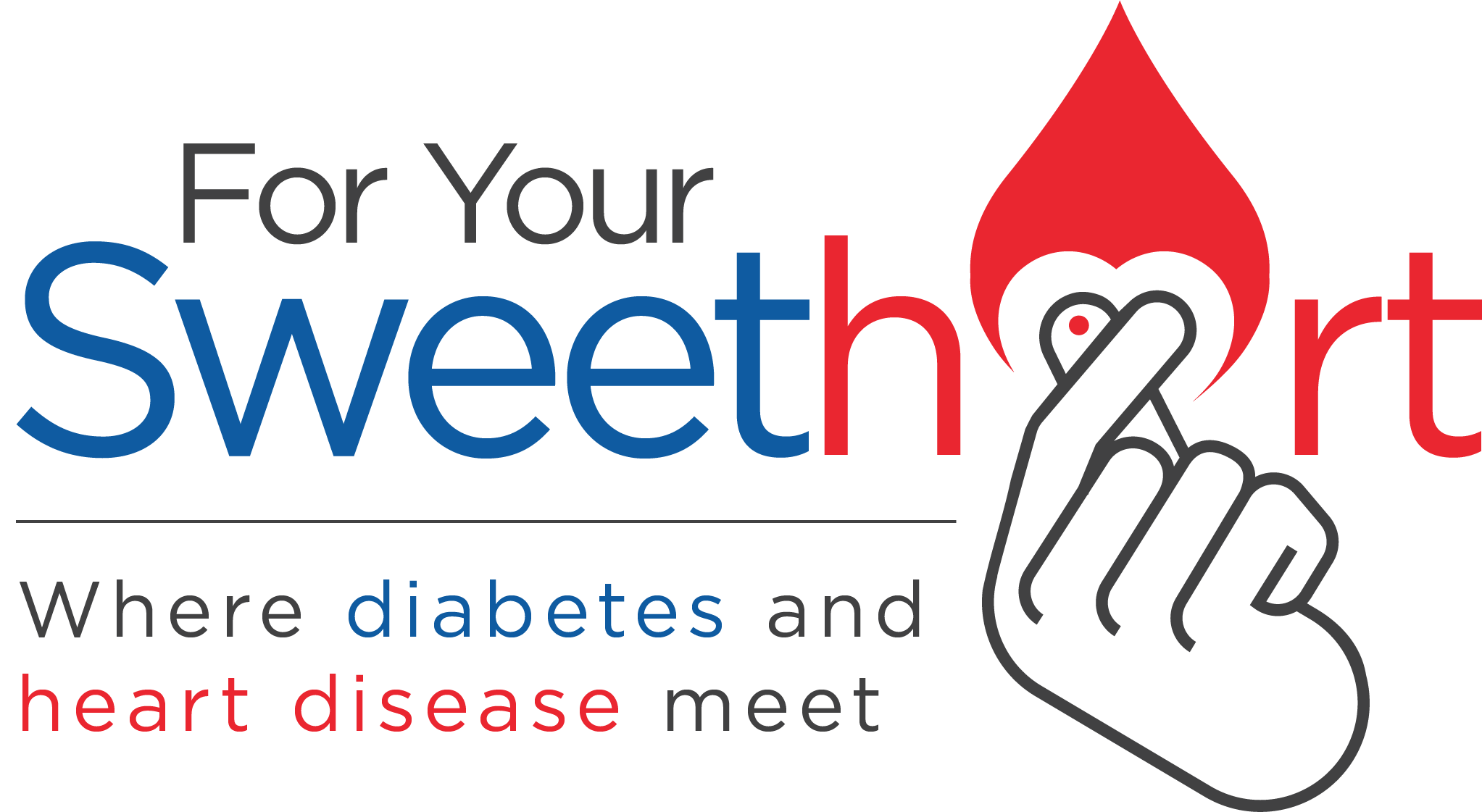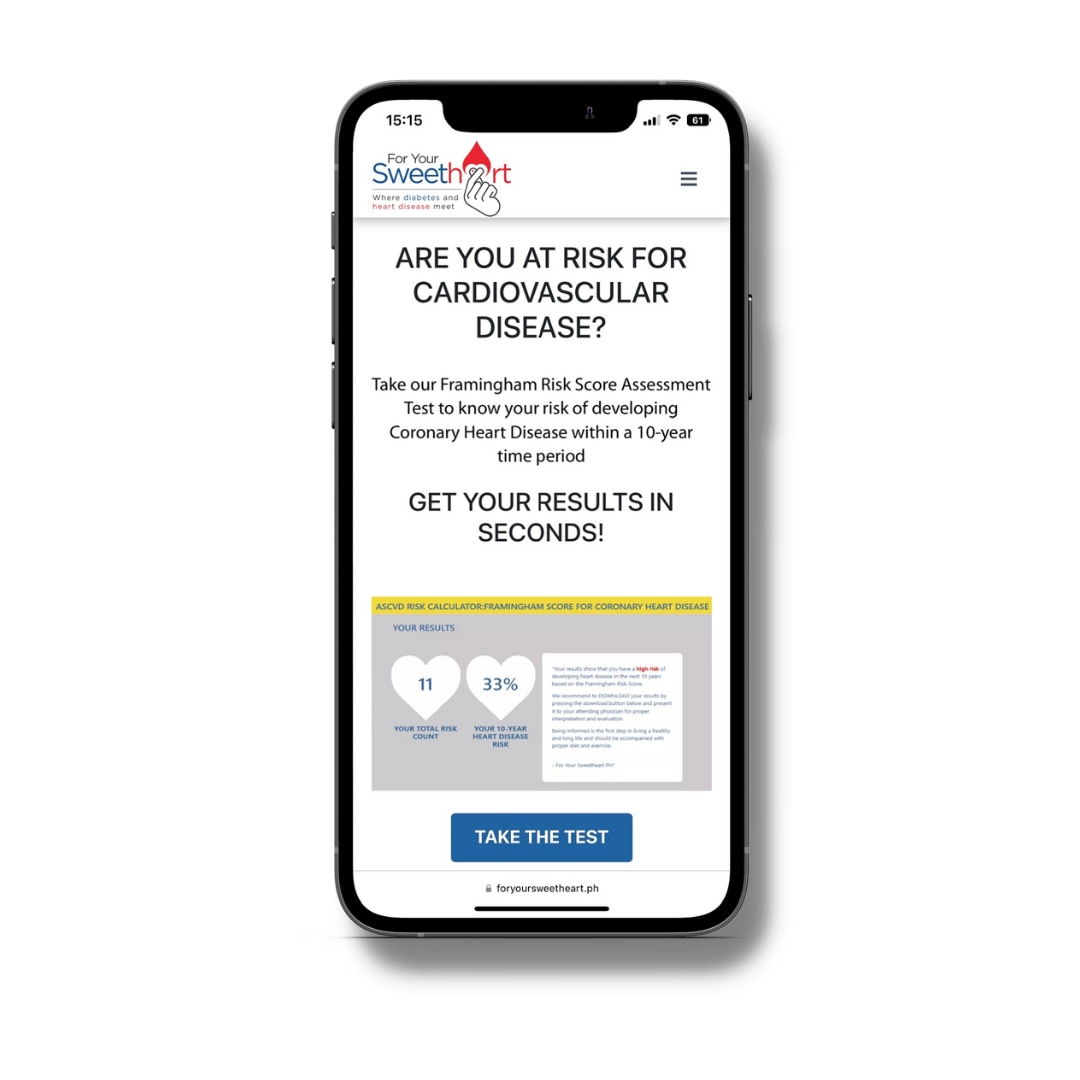How Filipinos' sugar intake may be bad for the heart | ABS-CBN
ADVERTISEMENT

Welcome, Kapamilya! We use cookies to improve your browsing experience. Continuing to use this site means you agree to our use of cookies. Tell me more!
How Filipinos' sugar intake may be bad for the heart
How Filipinos' sugar intake may be bad for the heart
Boehringer Ingelheim
Published Sep 29, 2022 02:00 PM PHT
Many Filipinos cannot get enough sweets and it is not just because they have a sweet tooth. Attachment to sugary food and drinks is said to be rooted in socio-cultural experiences of having a great time.
Many Filipinos cannot get enough sweets and it is not just because they have a sweet tooth. Attachment to sugary food and drinks is said to be rooted in socio-cultural experiences of having a great time.
"Filipinos often associate childhood memories with sweets like sodas and pastries. When there is a celebration in the house, the sugary food is often always present. So the brain equates these treats with happiness," explains Dr. Eric Cinco, President of the Philippine Heart Association (PHA).
"Filipinos often associate childhood memories with sweets like sodas and pastries. When there is a celebration in the house, the sugary food is often always present. So the brain equates these treats with happiness," explains Dr. Eric Cinco, President of the Philippine Heart Association (PHA).
The PHA is one of the organizations of medical professionals supporting "For Your SweetHeart," a nationwide movement that aims to raise awareness about the critical link between diabetes and heart disease.
The PHA is one of the organizations of medical professionals supporting "For Your SweetHeart," a nationwide movement that aims to raise awareness about the critical link between diabetes and heart disease.
"Our language also determines our happiness. Because Filipinos have gotten used to saying 'matamis na pagsasamahan' (sweet memories) and 'mapait na karanasan' (bitter experiences), bitterness has become associated with bad moments, while sweetness with good and happy ones," Dr. Cinco observes.
"Our language also determines our happiness. Because Filipinos have gotten used to saying 'matamis na pagsasamahan' (sweet memories) and 'mapait na karanasan' (bitter experiences), bitterness has become associated with bad moments, while sweetness with good and happy ones," Dr. Cinco observes.
ADVERTISEMENT
Invest in health
For Your Sweetheart advocates for a more health-conscious lifestyle among Filipinos, one that includes a healthy diet.
For Your Sweetheart advocates for a more health-conscious lifestyle among Filipinos, one that includes a healthy diet.
Dr. Cinco says that the public should realize that they can still savor happy moments without depending on sugary food and drinks.
Dr. Cinco says that the public should realize that they can still savor happy moments without depending on sugary food and drinks.
He explains that, based on a scientific study, those who consume higher amounts of added sugar, especially sweetened beverages, tend to gain more weight and are at higher risk of developing Type 2 diabetes, dyslipidemia, hypertension, and cardiovascular diseases that may possibly cause heart attacks and strokes.
He explains that, based on a scientific study, those who consume higher amounts of added sugar, especially sweetened beverages, tend to gain more weight and are at higher risk of developing Type 2 diabetes, dyslipidemia, hypertension, and cardiovascular diseases that may possibly cause heart attacks and strokes.
"We Filipinos need to understand the term 'investment in health'," Dr. Cinco emphasizes. "We have to ingrain in every Filipino that they have to invest in their own health."
"We Filipinos need to understand the term 'investment in health'," Dr. Cinco emphasizes. "We have to ingrain in every Filipino that they have to invest in their own health."
For some this might include having to exert conscious efforts to veer away from practices and habits formed earlier in their lives. "Example, pinalaki ka a particular way, but you have read na kailangan mong bawasan ang fats, sugar, and salt in your diet, then it is your legacy to your children to do that. The motivation may be internal, but the impact will be to the immediate family and then [to the] society," says Dr. Cinco.
("For example, you were raised in a particular way, but you have read that you need to cut down fats, sugar, and salt in your diet, then it is your legacy to your children to teach them healthy food habits. The motivation may be internal, but the impact will be to the immediate family and then to the society.")
For some this might include having to exert conscious efforts to veer away from practices and habits formed earlier in their lives. "Example, pinalaki ka a particular way, but you have read na kailangan mong bawasan ang fats, sugar, and salt in your diet, then it is your legacy to your children to do that. The motivation may be internal, but the impact will be to the immediate family and then [to the] society," says Dr. Cinco.
("For example, you were raised in a particular way, but you have read that you need to cut down fats, sugar, and salt in your diet, then it is your legacy to your children to teach them healthy food habits. The motivation may be internal, but the impact will be to the immediate family and then to the society.")
ADVERTISEMENT
Taste buds recalibration
Dr. Cinco clarifies that the medical and health community is not pushing for total elimination of sweets in one's diet. Rather, the target is to reduce consumption.
Dr. Cinco clarifies that the medical and health community is not pushing for total elimination of sweets in one's diet. Rather, the target is to reduce consumption.
"It is really the amount that matters," Dr. Cinco notes. He says that sweets should be taken just in moderation, in small amounts, rather than in excess.
"It is really the amount that matters," Dr. Cinco notes. He says that sweets should be taken just in moderation, in small amounts, rather than in excess.
Aside from moderation, he also recommends recalibration of taste buds, so that you can get the same flavor experience or same pleasure from the food with reduced sugar.
Aside from moderation, he also recommends recalibration of taste buds, so that you can get the same flavor experience or same pleasure from the food with reduced sugar.
He cites some classic Filipino desserts as examples.
He cites some classic Filipino desserts as examples.
Kakanin (rice cake) does not have to be full of sugar while halo halo does not need any sugar at all to be delicious. "Maraming Filipino snacks na hindi kailangan ng added sugar because by themselves, may linamnam at tamis na sila," he says.
Kakanin (rice cake) does not have to be full of sugar while halo halo does not need any sugar at all to be delicious. "Maraming Filipino snacks na hindi kailangan ng added sugar because by themselves, may linamnam at tamis na sila," he says.
ADVERTISEMENT
("We have many Filipino snacks that do not need any added sugar because they are already sweet and savory.")
("We have many Filipino snacks that do not need any added sugar because they are already sweet and savory.")
"And do not drink your calories. Drink water instead of soda as you enjoy your food. It is pleasurable too. There are many alternatives to the super sugary food we Filipinos love to eat. We should be conscious about that," adds Dr. Cinco.
"And do not drink your calories. Drink water instead of soda as you enjoy your food. It is pleasurable too. There are many alternatives to the super sugary food we Filipinos love to eat. We should be conscious about that," adds Dr. Cinco.
No single solution
The Department of Health has its "Pinggang Pinoy" advocacy where they illustrate how a typical plate should look like during meals.
The Department of Health has its "Pinggang Pinoy" advocacy where they illustrate how a typical plate should look like during meals.
PHA also has the "5-2-1-0-0" campaign, an advocacy that completely eliminates sugary drinks and is an easy way to keep healthy: eat 5 servings of fruits and vegetables per day, keep salt consumption to 2 grams per day, keep screen time to a maximum of 2 hours, do 1 hour of exercise, 0 smoking, and 0 sugary drinks.
PHA also has the "5-2-1-0-0" campaign, an advocacy that completely eliminates sugary drinks and is an easy way to keep healthy: eat 5 servings of fruits and vegetables per day, keep salt consumption to 2 grams per day, keep screen time to a maximum of 2 hours, do 1 hour of exercise, 0 smoking, and 0 sugary drinks.
"There is no magic bullet, no single solution. It is the everyday little things that you do that will ultimately protect you and your loved ones. You can choose a healthy lifestyle. You can choose health-promoting behavior, you can choose to have frequent check ups with your doctor, and you can make heart health a family affair," states Dr. Cinco.
"There is no magic bullet, no single solution. It is the everyday little things that you do that will ultimately protect you and your loved ones. You can choose a healthy lifestyle. You can choose health-promoting behavior, you can choose to have frequent check ups with your doctor, and you can make heart health a family affair," states Dr. Cinco.
ADVERTISEMENT
Aside from advocating a heart-healthy lifestyle, "For Your SweetHeart" reintroduced an easy and quick online tool to help determine people's risk of developing coronary heart disease that may possibly cause heart attacks and other heart ailments within 10 years.
Aside from advocating a heart-healthy lifestyle, "For Your SweetHeart" reintroduced an easy and quick online tool to help determine people's risk of developing coronary heart disease that may possibly cause heart attacks and other heart ailments within 10 years.
Called the Framingham Assessment Test, the self-administered web-based test uses current health status including cholesterol levels and blood pressure to calculate the user's risks.
Called the Framingham Assessment Test, the self-administered web-based test uses current health status including cholesterol levels and blood pressure to calculate the user's risks.
Anyone from 30 years old to 74 years old without any history of heart problems can take the test at the "For Your SweetHeart" website.
Anyone from 30 years old to 74 years old without any history of heart problems can take the test at the "For Your SweetHeart" website.
"For Your SweetHeart" is supported by Boehringer Ingelheim together with the Philippine Heart Association, Philippine College of Endocrinology Diabetes and Metabolism, Alliance of Clinical Endocrinologists, Diabetes Philippines, Institute for Studies on Diabetes Foundation, Inc., Philippine Alliance of Diabetes Educators, and Philippine Alliance of Patient Organizations.
"For Your SweetHeart" is supported by Boehringer Ingelheim together with the Philippine Heart Association, Philippine College of Endocrinology Diabetes and Metabolism, Alliance of Clinical Endocrinologists, Diabetes Philippines, Institute for Studies on Diabetes Foundation, Inc., Philippine Alliance of Diabetes Educators, and Philippine Alliance of Patient Organizations.
MPR-PH-100332. September 2022
MPR-PH-100332. September 2022
ADVERTISEMENT
ADVERTISEMENT







